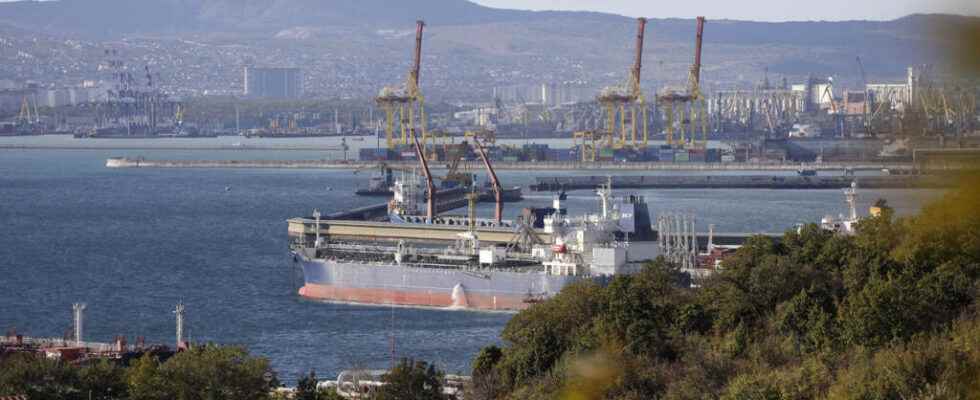The EU embargo on Russian oil comes into force on Monday. A long-awaited sanction on the side of kyiv which is supposed to dry up one of Moscow’s main sources of income. This decision, taken in May after long weeks of discussions, only concerns oil transported by sea. Exemptions had indeed been found, in particular for Hungary.
From the beginning of the conflict in Ukraine last February, the Russia earned 67 billion euros from its sales of Russian oil to the European Union. However, its annual military budget amounts to approximately 60 billion euros per year.
Europe has already adopted several sets of sanctions against Russia because of the invasion of Ukraine. But to stop indirectly financing the war in Ukraine, it has set up this oil embargo from this Monday. On one condition, however, that it only affects marine oil.
Supply reorganization
Today, two thirds of the Russian oil consumed in Europe arrives by sea. The rest is transported by pipeline and mostly concerns landlocked countries which will continue to obtain supplies in this way.
For example, Hungary, which had threatened to veto it, will finally be able to continue importing its oil via the Druzhba pipeline. Same thing for Slovakia and the Czech Republic. Brussels gives them time to reorganize their energy systems.
As for Germany and Poland, the two countries have decided on their own to stop their deliveries via this same pipeline by the end of the year. Thus Russian imports will be affected by more than 90%, say the Europeans.
For Moscow, however, it is easier to find other buyers for its exports by tanker than by pipeline. Some Member States fear, however, that the pipeline supply exemption will distort the conditions of competition for oil purchases.
Towards a destabilization of the world market?
But with this measure from the European Union, some analysts fear a destabilization of the global oil market. An observation that is not shared by Francis Perrin, hydrocarbon specialist and associate researcher at the Policy Center for the New South in Rabat. According to him, ” reorientation does not mean destabilization “.
I don’t think we can speak of destabilization of the world oil market. Obviously, there will be an impact. We cannot take a measure as strong as an embargo (…) without impacting the oil market and oil prices. Since 2022, we have already seen a reorientation of global oil flows.
Francis Perrin, hydrocarbon specialist and associate researcher at the Policy Center for the New South in Rabat
►Read also: Status quo at OPEC+ on oil production in an uncertain world
